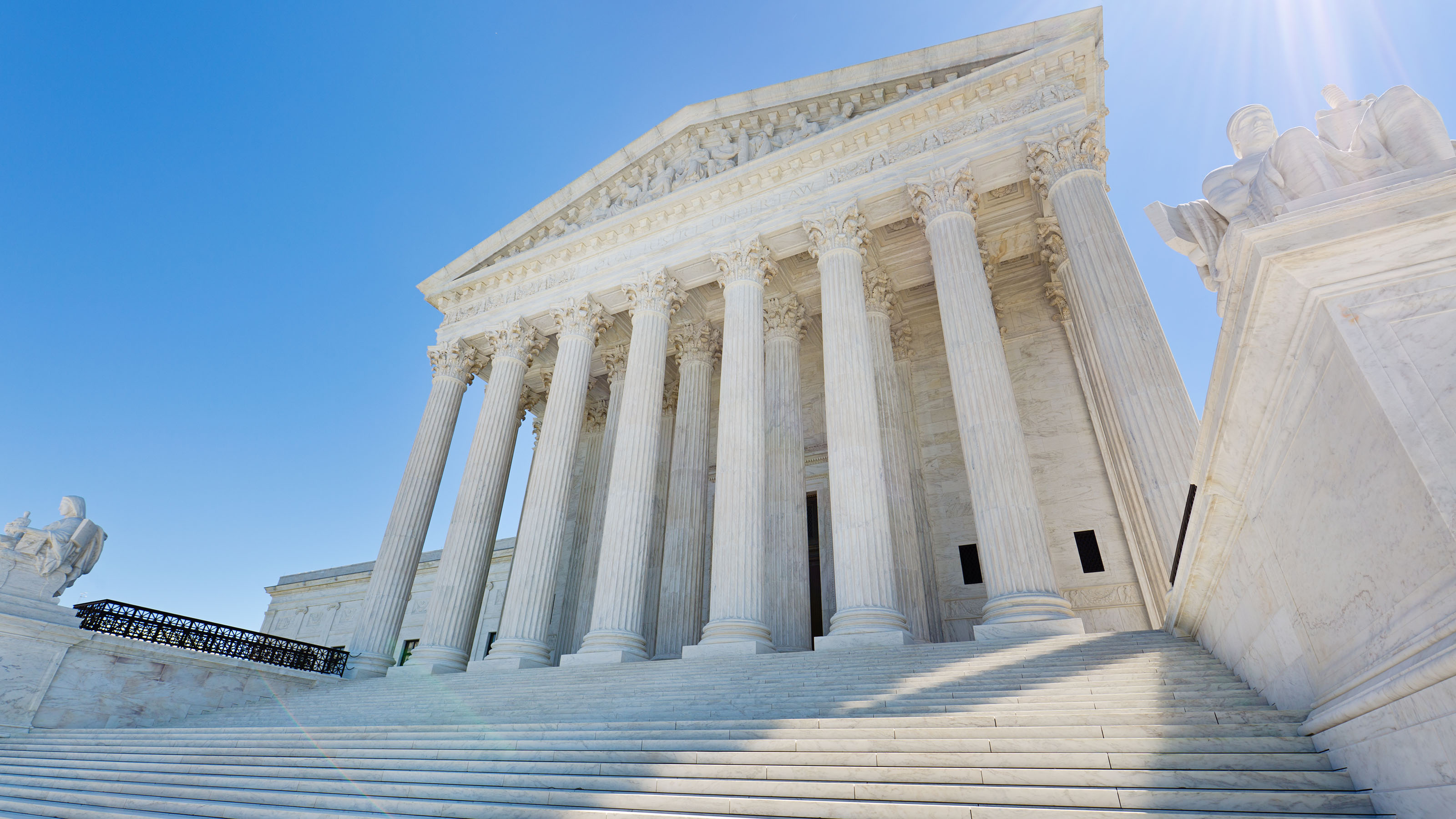Congress, Obama Ready to Change Medicare
Entitlement reform, long resisted, will be part of the high-stakes fiscal cliff debate.

Profit and prosper with the best of Kiplinger's advice on investing, taxes, retirement, personal finance and much more. Delivered daily. Enter your email in the box and click Sign Me Up.
You are now subscribed
Your newsletter sign-up was successful
Want to add more newsletters?

Delivered daily
Kiplinger Today
Profit and prosper with the best of Kiplinger's advice on investing, taxes, retirement, personal finance and much more delivered daily. Smart money moves start here.

Sent five days a week
Kiplinger A Step Ahead
Get practical help to make better financial decisions in your everyday life, from spending to savings on top deals.

Delivered daily
Kiplinger Closing Bell
Get today's biggest financial and investing headlines delivered to your inbox every day the U.S. stock market is open.

Sent twice a week
Kiplinger Adviser Intel
Financial pros across the country share best practices and fresh tactics to preserve and grow your wealth.

Delivered weekly
Kiplinger Tax Tips
Trim your federal and state tax bills with practical tax-planning and tax-cutting strategies.

Sent twice a week
Kiplinger Retirement Tips
Your twice-a-week guide to planning and enjoying a financially secure and richly rewarding retirement

Sent bimonthly.
Kiplinger Adviser Angle
Insights for advisers, wealth managers and other financial professionals.

Sent twice a week
Kiplinger Investing Weekly
Your twice-a-week roundup of promising stocks, funds, companies and industries you should consider, ones you should avoid, and why.

Sent weekly for six weeks
Kiplinger Invest for Retirement
Your step-by-step six-part series on how to invest for retirement, from devising a successful strategy to exactly which investments to choose.
Here is one big surprise following President Obama's win over Republican nominee Mitt Romney: Medicare will play a central role in talks aimed at settling tax and spending issues before the U.S. plunges over the fiscal cliff.
Democrats have been mostly united in wanting to spare the program, which offers health care and drug coverage to older Americans. At the same time, Republicans have been reluctant to consider Obama's effort to raise tax rates for high earners.
So putting Medicare on the table, which the Obama administration has quietly done, means the sacred cows from both parties will be in play. That's a strong signal that Congress and the White House are serious about negotiating a grand bargain, if not in the lame-duck session now under way, then in the early months of the new session that gets started in January.
From just $107.88 $24.99 for Kiplinger Personal Finance
Become a smarter, better informed investor. Subscribe from just $107.88 $24.99, plus get up to 4 Special Issues

Sign up for Kiplinger’s Free Newsletters
Profit and prosper with the best of expert advice on investing, taxes, retirement, personal finance and more - straight to your e-mail.
Profit and prosper with the best of expert advice - straight to your e-mail.
Even if they're not part of a deal on the fiscal cliff, Medicare changes are coming. Delay will only put off the inevitable and add billions to costs. Program costs, already a big driver of federal spending, will continue to grow for years, from $519 billion in 2010 to $929 billion in 2020, and from 3.6% of GDP in 2010 to 5.1% of the economy in 2030. The number of beneficiaries will reach 80 million, from 47 million now, and the number of workers paying into the system will fall.
Here's what to expect when a Medicare deal is reached:
A pushed-back age for enrollment, to 67 from 65. This change won't apply to folks who are close to retirement -- most likely those who are 55 and older. It will phased in for others. At the end of the phase-in, the eligibility ages for Social Security and Medicare will match.
More means testing. Those with incomes over $85,000 -- twice that for couples -- already pay higher premiums for doctor coverage and the prescription drug program, and they'll probably be on the hook for even bigger payments. The new charges will be for new participants as well as for those who are already enrolled. It is possible, but not likely, that Congress will set a lower income for the higher costs to kick in rather than raise rates for those above the current limit.
Perhaps a higher copayment, meant to encourage shopping around for care.
Requiring drug makers to offer bigger discounts for prescription medications. The government could save $137 billion over 10 years if Medicare got the same markdown that the manufacturers give to Medicaid, which pays for health care for people with low incomes.
The formula for paying physicians will be changed to prevent cuts in service by doctors who threaten to stop seeing Medicare patients. The fix isn't likely to be permanent, but it will be long enough to prevent the year-to-year uncertainty that comes with short-term attempts to address the problem.
And here's one thing that won't happen: Vouchers that will allow participants to choose their own coverage. That Republican-backed trial balloon deflated quickly once Obama won a second term.
The timing is right for a big deal on the fiscal cliff, with Medicare, higher taxes and other high-risk items on the table. Making difficult decisions now gives both sides plenty of time before the next elections in 2014.
But the Medicare window won't be open long. If no agreement is reached in 2013, the next best change will come in 2017, when a new president comes to power. By then, of course, the system's finances would be even more out of whack than they are now.
Profit and prosper with the best of Kiplinger's advice on investing, taxes, retirement, personal finance and much more. Delivered daily. Enter your email in the box and click Sign Me Up.

-
 5 Vince Lombardi Quotes Retirees Should Live By
5 Vince Lombardi Quotes Retirees Should Live ByThe iconic football coach's philosophy can help retirees win at the game of life.
-
 The $200,000 Olympic 'Pension' is a Retirement Game-Changer for Team USA
The $200,000 Olympic 'Pension' is a Retirement Game-Changer for Team USAThe donation by financier Ross Stevens is meant to be a "retirement program" for Team USA Olympic and Paralympic athletes.
-
 10 Cheapest Places to Live in Colorado
10 Cheapest Places to Live in ColoradoProperty Tax Looking for a cozy cabin near the slopes? These Colorado counties combine reasonable house prices with the state's lowest property tax bills.
-
 Is a New $25,000 Health Care Tax Deduction Coming in 2026?
Is a New $25,000 Health Care Tax Deduction Coming in 2026?Tax Policy A proposal from GOP Sen. Josh Hawley adds to the chatter about health care affordability.
-
 Money for Your Kids? Three Ways Trump's ‘Big Beautiful Bill’ Impacts Your Child's Finances
Money for Your Kids? Three Ways Trump's ‘Big Beautiful Bill’ Impacts Your Child's FinancesTax Tips The Trump tax bill could help your child with future education and homebuying costs. Here’s how.
-
 Key 2025 Tax Changes for Parents in Trump's Megabill
Key 2025 Tax Changes for Parents in Trump's MegabillTax Changes Are you a parent? The so-called ‘One Big Beautiful Bill’ (OBBB) impacts several key tax incentives that can affect your family this year and beyond.
-
 Will EVs Drive the Vote in Election 2024 Swing States?
Will EVs Drive the Vote in Election 2024 Swing States?Tax Credits Electric vehicle tax credits have somehow become controversial. So car buyer attitudes in swing states might make a difference.
-
 How Four Recent Supreme Court Rulings Impact Your Money
How Four Recent Supreme Court Rulings Impact Your MoneySupreme Court Some U.S. Supreme Court decisions could affect your finances. Here’s what you need to know.
-
 Are Student Loans Being Forgiven or Not?
Are Student Loans Being Forgiven or Not?Student Loans The House and Senate voted to repeal President Biden’s student loan forgiveness plan, but does it even matter?
-
 Etsy, eBay, PayPal Want IRS 1099-K Relief for Online Sellers
Etsy, eBay, PayPal Want IRS 1099-K Relief for Online SellersIncome Tax Companies like eBay, Etsy, and PayPal want Congress to raise the $600 reporting threshold for IRS Form 1099-K to give relief to millions of sellers who use their sites.
-
 Student Loan Forgiveness Blocked For Now Due to Court Rulings
Student Loan Forgiveness Blocked For Now Due to Court RulingsBiden's student loan debt forgiveness program is on hold until the U.S. Supreme Court weighs in.